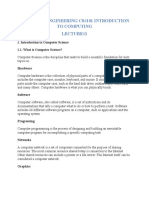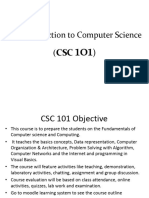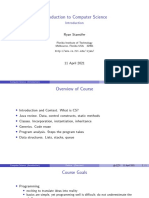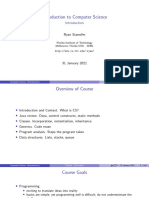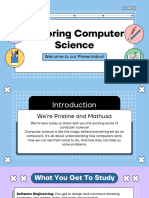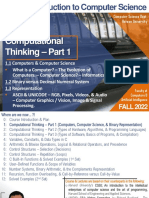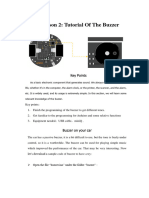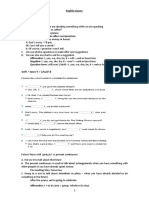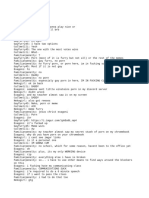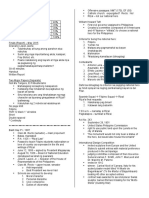0% found this document useful (0 votes)
111 views11 pagesComputer Science Basics For Beginners
This document introduces computer science as the study of computers and their information processing capabilities, emphasizing its importance in modern technology and problem-solving. It covers key areas such as programming, data structures, cybersecurity, and artificial intelligence, while also explaining basic terminologies and the distinction between hardware and software. The document encourages beginners to start learning through accessible resources and highlights the inclusive nature of computer science for all aspiring learners.
Uploaded by
codeavail7Copyright
© © All Rights Reserved
We take content rights seriously. If you suspect this is your content, claim it here.
Available Formats
Download as PPTX, PDF, TXT or read online on Scribd
0% found this document useful (0 votes)
111 views11 pagesComputer Science Basics For Beginners
This document introduces computer science as the study of computers and their information processing capabilities, emphasizing its importance in modern technology and problem-solving. It covers key areas such as programming, data structures, cybersecurity, and artificial intelligence, while also explaining basic terminologies and the distinction between hardware and software. The document encourages beginners to start learning through accessible resources and highlights the inclusive nature of computer science for all aspiring learners.
Uploaded by
codeavail7Copyright
© © All Rights Reserved
We take content rights seriously. If you suspect this is your content, claim it here.
Available Formats
Download as PPTX, PDF, TXT or read online on Scribd
/ 11













